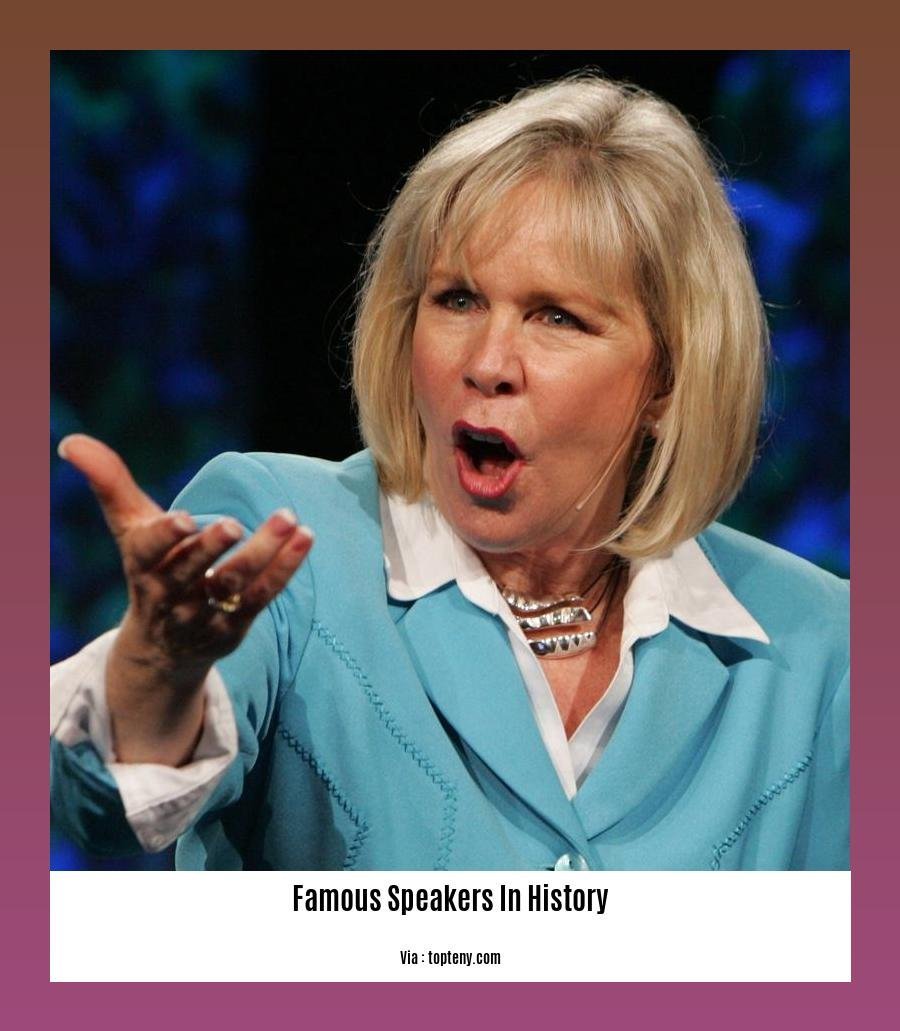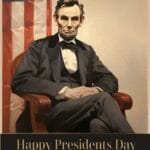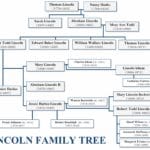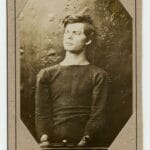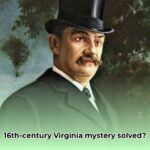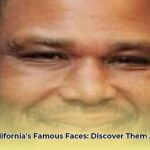Step into the captivating world of renowned speakers who have left an indelible mark on the annals of history, shaping societal narratives, and inspiring generations with their eloquence and charisma. In “The Enduring Voices: Unveiling the Legacy of Famous Speakers in History,” we embark on a journey to uncover the pivotal moments and anecdotes that define these iconic figures, shedding light on their profound impact and the timeless lessons they imparted to the world.
Key Takeaways:
- Winston Churchill, the British Prime Minister during World War II, is considered one of the greatest speakers ever.
- Abraham Lincoln delivered the iconic Gettysburg Address, solidifying his status as a revered orator.
- John F. Kennedy inspired millions with his eloquence and charisma, leaving a lasting legacy as a great speaker.
- Martin Luther King Jr.’s powerful speeches advocating for equality and nonviolence captivated audiences and made him a renowned figure.
- Margaret Thatcher’s strong leadership style and speeches as the first female Prime Minister of the United Kingdom earned her recognition.
- Mahatma Gandhi’s speeches played a crucial role in inspiring the Indian independence movement through his message of nonviolent resistance.
- Oscar Wilde’s wit and eloquence in his public lectures and speeches made him a renowned orator.
- Nelson Mandela’s speeches resonated worldwide during his fight against racial injustice and oppression.
Famous Speakers in History
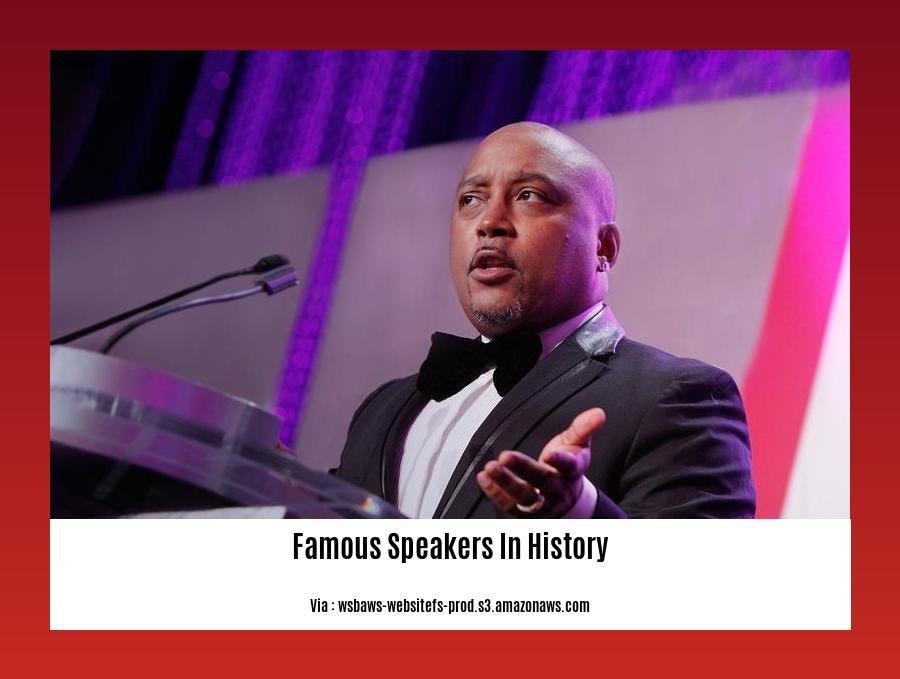
In the annals of history, certain individuals have left an indelible impact through their eloquence and charisma, captivating audiences and shaping societal narratives. These famous speakers in history transcended their times, becoming iconic figures whose words continue to resonate across generations. Let’s explore the captivating journeys of these influential orators:
1. Winston Churchill: The Voice of Resilience
- During World War II, Winston Churchill’s rousing speeches galvanized the British nation, inspiring resilience amidst adversity. His iconic speeches, such as “We shall fight on the beaches,” became emblems of defiance and determination.
- Churchill masterfully employed rhetorical devices, creating vivid imagery and evoking emotions, making his speeches unforgettable and impactful.
- His legacy as a wartime leader and orator remains unparalleled, a testament to the power of words in times of crisis.
2. Abraham Lincoln: The Great Emancipator’s Eloquence
- Abraham Lincoln’s Gettysburg Address stands as a masterpiece of American oratory, delivering a profound message of unity, equality, and the pursuit of a greater national purpose.
- Lincoln’s ability to connect with ordinary Americans through his speeches, often filled with wit and humor, made him a beloved figure during the tumultuous Civil War era.
- His eloquence transcended his presidency, shaping the course of American history and leaving a lasting legacy of transformative leadership.
3. John F. Kennedy: A Visionary’s Call to Action
- John F. Kennedy’s speeches, marked by his distinctive, charismatic delivery, inspired a generation to embrace progress and strive for a better world.
- His inaugural address, challenging Americans to “ask not what your country can do for you, ask what you can do for your country,” became a clarion call for active citizenship and service.
- Kennedy’s eloquence extended beyond domestic affairs, as his speeches on the global stage helped redefine America’s role in the Cold War era.
4. Martin Luther King Jr.: A Voice for Civil Rights
- Martin Luther King Jr.’s speeches, brimming with passion, conviction, and biblical imagery, became powerful tools in the fight for civil rights.
- His iconic “I Have a Dream” speech, delivered at the Lincoln Memorial, articulated a vision of racial equality and social justice that resonated across the nation.
- King’s eloquence, coupled with his nonviolent resistance, transformed him into a global symbol of the civil rights movement.
5. Margaret Thatcher: The Iron Lady’s Resolute Voice
- Margaret Thatcher, Britain’s first female prime minister, commanded attention with her unwavering resolve and distinctly articulate speaking style.
- Her speeches, often forceful and direct, reflected her strong leadership and dedication to conservative values.
- Thatcher’s ability to connect with voters on a personal level, despite her reputation as the “Iron Lady,” showcased her political acumen and communication skills.
These famous speakers in history left an indelible mark on the world, demonstrating the enduring power of eloquence and charisma. Their words, captured in time, continue to inspire, challenge, and motivate generations, shaping the course of history and leaving a legacy that echoes through the ages.
Nigeria has a rich economic history dating back to pre-colonial times.
If you are preparing for the CSS exam and want to ace the European History section, check out the European History CSS syllabus for a comprehensive overview of the topics covered.
For all the football enthusiasts, immerse yourself in the fantasy premier league history and strategies employed by top managers over the years.
Inspiring Nations: Gandhi, Lincoln, and the Art of Eloquence
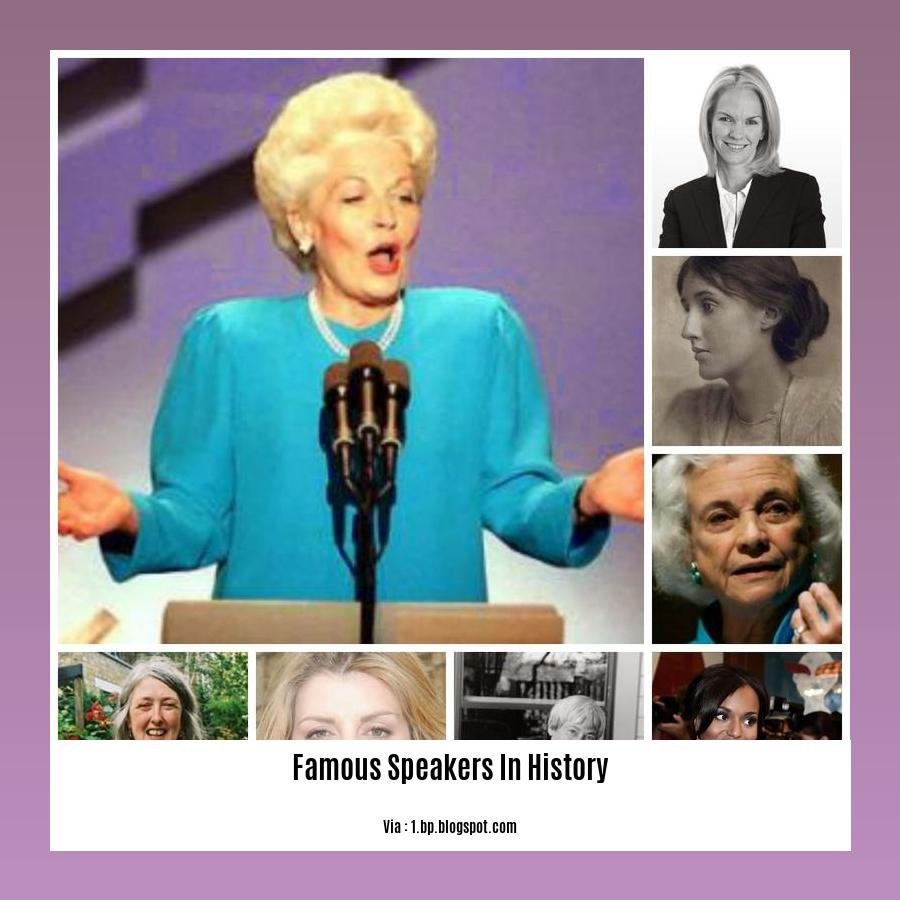
Great orators have the ability to move people to take action. Their words can rouse nations to fight for freedom, equality, and justice. Mahatma Gandhi and Abraham Lincoln stand as two shining examples of this power.
Setting the Stage
Did you know that in order to capture the meaning and intent of a speech, it’s not only about the words used but also about understanding the context and audience, according to David Hume and Francis Hutcheson?
Both Gandhi and Lincoln employed this understanding in their oratory, skillfully connecting with their audiences on a deep level.
Gandhi: A Voice for Nonviolent Resistance
- Mohandas Karamchand Gandhi, also known as Mahatma Gandhi, was a preeminent leader of the Indian independence movement in British-ruled India.
- He was a master of nonviolent resistance and civil disobedience, championing a unique form of protest that challenged the British colonial rule.
- Gandhi’s speeches, delivered with a calm and persuasive voice, resonated deeply with his people, inspiring them to stand up for their rights.
- His famous “Quit India” speech in 1942, urging Indians to free themselves from British rule, is a testament to his powerful oratory.
Lincoln: A Voice for Unity and Equality
- Abraham Lincoln, the 16th President of the United States, profoundly influenced the course of American history.
- During the American Civil War, Lincoln’s speeches rallied the nation, advocating for the preservation of the Union and the abolition of slavery.
- His Gettysburg Address, delivered in 1863, remains a masterpiece of oratory, remembered for its ability to unite the nation and articulate a vision of equality for all.
Common Threads: Inspiring Nations
- Gandhi and Lincoln shared several common traits that contributed to their ability to inspire nations:
- Clarity of Message:
Both leaders had a clear understanding of their goals and communicated them with utmost clarity, ensuring their messages resonated with the masses. - Authenticity:
Their speeches were deeply rooted in their personal convictions, reflecting their genuineness and authenticity, which resonated with their audiences. - Passion and Conviction:
Both possessed a burning passion for their causes and spoke with deep conviction, igniting the hearts and minds of their listeners. - Timing:
Gandhi and Lincoln delivered their most impactful speeches at critical junctures in history, when their words had the greatest potential to shape the course of events.
Key Takeaways:
- Eloquence is not just about technical prowess but also about understanding your audience and the context.
- Gandhi and Lincoln’s speeches resonated because they spoke to the hearts and minds of their listeners.
- Effective oratory can inspire nations to unite and fight for common goals.
- Authenticity, clarity, passion, and timing are essential elements of powerful speeches.
Sources:
- Oxford Academic:
- Oxford Academic:
Modern Masters: Kennedy, Mandela, and the Impact of Charismatic Leadership
In a world clamoring for influential leaders, two names that stand out are Nelson Mandela and John F. Kennedy, icons who captivated hearts with their charisma and eloquence. They ignited hope, inspired change, and left an undeniable imprint on the course of history.
Charismatic leaders possess an aura that draws people towards them, enabling them to influence and persuade with a mere flick of their tongue. This magnetism is not merely a gift; it is a carefully crafted skill that blends passion, vision, and the ability to connect on a deep emotional level.
Nelson Mandela, the epitome of resilience and forgiveness, led a peaceful resistance against apartheid in South Africa. His charisma stemmed from his unwavering belief in equality, his ability to unite people from all walks of life, and his infectious optimism. Mandela’s speeches were not just words; they were weapons of mass inspiration, dismantling the walls of segregation and paving the way for a rainbow nation.
Similarly, John F. Kennedy, the charismatic president of the United States, rallied a nation on the brink of change. His inaugural address, brimming with youthful idealism, challenged Americans to embrace progress and strive for a better world. Kennedy’s speeches were marked by eloquence, poise, and an almost poetic cadence that resonated with millions. His famous “Ich bin ein Berliner” speech, delivered in the heart of Cold War Germany, remains a testament to his ability to connect on a personal level, forging a bond of friendship between two nations.
The impact of these charismatic leaders extended far beyond their political achievements. They inspired a generation to believe in the power of unity, to fight for justice, and to strive for a better future. Their legacies live on, not just in history books but in the hearts of millions who were touched by their words and deeds.
Key Takeaways:
- Nelson Mandela and John F. Kennedy were two of the most charismatic leaders of the 20th century.
- Both men used their charisma to inspire change and to bring about social progress.
- Mandela’s charisma stemmed from his unwavering belief in equality, his ability to unite people from all walks of life, and his infectious optimism.
- Kennedy’s charisma was marked by his eloquence, poise, and an almost poetic cadence that resonated with millions.
- The impact of these charismatic leaders extended far beyond their political achievements. They inspired a generation to believe in the power of unity, to fight for justice, and to strive for a better future.
Citations:
- Tony Robbins, “What Made Nelson Mandela a Charismatic Leader?,”
- The Nelson Mandela Foundation, “Nelson Mandela: A Legacy of Leadership and Inspiration,”
Women in Oratory: Exploring the Contributions of Pankhurst, Roosevelt, and Davis
In the annals of history, legendary orators have ignited hearts, minds, and societal movements through their eloquent words. Their speeches transcended time, leaving an enduring legacy that continues to inspire generations. Among these influential figures, three remarkable women—Emmeline Pankhurst, Eleanor Roosevelt, and Angela Davis—stand out for their profound contributions to oratory. Let’s delve into their captivating journeys and how they harnessed the power of speech to shape history.
Emmeline Pankhurst: The Voice of Suffragism
Emmeline Pankhurst, the indomitable leader of the suffragette movement in the United Kingdom, dedicated her life to securing voting rights for women. She recognized the transformative power of words and used her voice as a potent weapon. Emmeline’s oratory skills shone during her impassioned speeches, as she eloquently articulated the injustices faced by women and rallied them to join the fight for equality. Her unwavering belief in the power of women’s voices ultimately led to the Representation of the People Act in 1918, granting women over the age of 30 the right to vote.
Eleanor Roosevelt: A Voice for Human Rights
Eleanor Roosevelt, the longest-serving First Lady of the United States, emerged as a trailblazer in championing human rights and social justice. Her eloquence lay in her ability to connect with diverse audiences, addressing their concerns and instilling hope. Eleanor’s speeches resonated with her listeners, as she fearlessly spoke out against racial discrimination, economic inequality, and the plight of the marginalized. Through her eloquent words, she became a powerful advocate for social change, leaving an indelible mark on the fight for human dignity.
Angela Davis: A Voice of Resistance
Angela Davis, the renowned activist, scholar, and advocate for social justice, has captivated audiences with her thought-provoking speeches. She possesses a gift for articulating complex issues in a manner that resonates with both the intellect and the heart. Angela’s oratory prowess is evident in her passionate speeches, where she challenges societal norms, advocates for the rights of the oppressed, and exposes systemic injustices. Her words ignite a fire in the hearts of listeners, inspiring them to question the status quo and actively participate in the struggle for a more just and equitable society.
Key Takeaways:
Emmeline Pankhurst’s leadership and unwavering commitment to women’s suffrage transformed the fight for equality in the UK.
Eleanor Roosevelt’s eloquent advocacy for human rights and social justice earned her the reputation of a fierce champion of the marginalized.
Angela Davis’s thought-provoking speeches challenge societal norms and inspire activism against systemic injustices.
Women in oratory, like Pankhurst, Roosevelt, and Davis, have shattered societal barriers, raised awareness for important causes, and left an enduring legacy of change.
Citation
– Emmeline Pankhurst Biography
– Eleanor Roosevelt Biography
FAQ
Q1: What are the common traits shared among the most influential public speakers in history?
Q2: Can you provide specific examples of how famous speeches have shaped societal narratives throughout history?
Q3: What challenges did renowned orators face in delivering their messages, and how did they overcome these obstacles?
Q4: How did the backgrounds and personal experiences of these speakers influence the content and impact of their speeches.
Q5: What lessons can we learn from the legacies of these famous speakers, and how can we apply their principles to effective communication in the present day?
- Jesus Bible: Discover Jesus’s Story Throughout Scripture - April 27, 2025
- Don Luis: Unraveling the 16th-Century Virginia Mystery - April 27, 2025
- Captain J’s Kauai Tours: Unforgettable Na Pali Coast Adventures - April 27, 2025
